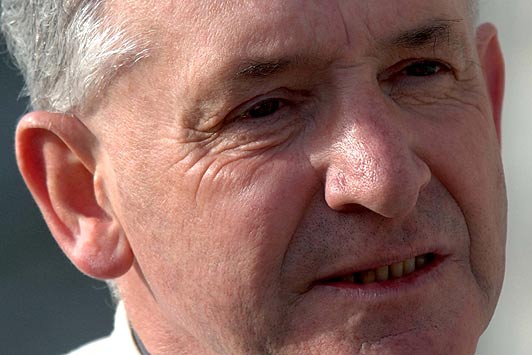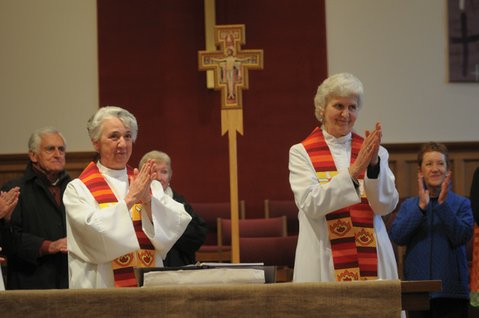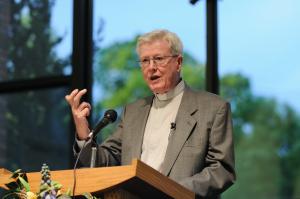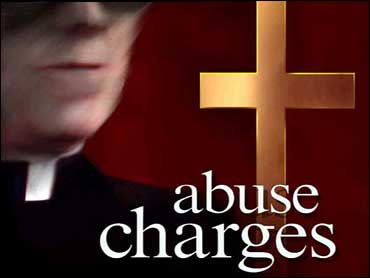An 800-strong group of Irish priests has said it is disturbed over the Vatican’s silencing of one of its members for his liberal views.
 The Association of Catholic Priests has warned that forcing Father Tony Flannery to stop writing for a Redemptorist magazine will fuel belief of a disconnect between Irish Catholics and Rome.
The Association of Catholic Priests has warned that forcing Father Tony Flannery to stop writing for a Redemptorist magazine will fuel belief of a disconnect between Irish Catholics and Rome.
“We believe that such an approach, in its individual focus on Fr Flannery and inevitably by implication on the members of the association, is an extremely ill-advised intervention in the present pastoral context in Ireland,” the group said.
“We wish to make clear our profound view that this intervention is unfair, unwarranted and unwise.”
Fr Flannery, a founder of the association, has had his monthly column with the religious publication Reality pulled on orders from Rome.
A second priest, Father Gerard Moloney, the magazine’s editor, has been ordered to stop writing on certain issues.
Both priests hold liberal views on contraception, celibacy and women priests.
At least a dozen priests had already publicly declared support for Fr Flannery and Fr Moloney in messages on the association’s website.
In a strongly-worded statement, the group said Fr Flannery’s writings should not be seen as an attack on or rejection of the fundamental teachings of the church but a reflection on issues surfacing in parishes nationwide.
It said they also reject their portrayal in some circles as a “small coterie of radical priests with a radical agenda”.
“Accordingly, we wish to register our extreme unease and disquiet at the present development, not least the secrecy surrounding such interventions and the questions about due process and freedom of conscience that such interventions surface,” the group said.
“At this critical juncture in our history, the ACP believes that this form of intervention – what Archbishop Diarmuid Martin recently called ‘heresy-hunting’ – is of no service to the Irish Catholic Church and may have the unintended effect of exacerbating a growing perception of a significant ‘disconnect’ between the Irish Church and Rome.”
Fr Flannery, who has written on religious matters in the Redemptorist magazine for 14 years, is under investigation by the Vatican over his views.
As well as expressing opposition to the church’s ban on contraception and women priests, Fr Flannery publicly backed Taoiseach Enda Kenny’s unprecedented attack on the Catholic hierarchy in the aftermath of the Cloyne Report last year.
In a Holy Thursday homily at St Peter’s Basilica in Rome, Pope Benedict warned that the church will not tolerate priests speaking out against Catholic teaching.
Complete Article HERE!




